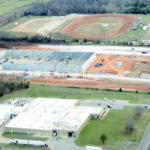Randy Crane: No pain, no gain

You’ve probably heard the saying “No Pain, No Gain” when it comes to physical exercise.
To exercise muscles that haven’t been used for a while will likely cause some pain. But it’s all for “gain” as those muscles then grow stronger, enabling better physical fitness and stamina.
James, in his New Testament letter, tells us the “No Pain, No Gain” principle applies to spiritual fitness and stamina as well “Consider it pure joy, my brothers and sisters, whenever you face trials of many kinds, because you know that the testing of your faith produces perseverance. Let perseverance finish its work so that you may be mature and complete, not lacking anything.” James 1:2-4, NIV.
Trials and tests to our faith will come from times of adversity and affliction. Some Christian teachers and authors tell us that God doesn’t want us to go through any troubles or difficulties. They suggest that if we just have strong enough faith God will protect us from such times of affliction. I disagree.
The Bible shows us numerous accounts or verses of instruction in which God actually brings affliction (or, allows affliction) in order to train his people to grow stronger in their trust and dependence upon Him. I think most would agree that though times of trouble and affliction may not be desired, they are ultimately good for us — “No Pain, No Gain.”
This principle holds true in various areas of life. For instance, looking back on my education, whether in elementary school or college, I can honestly say that it was the harder teachers or professors that I learned the most from.
But, we certainly prefer an easy life to a hard life. I do. Probably you, too. So what will help us not come undone when difficulties occur? What James says in those verses above is essentially this: You need to keep the bigger picture in view. Remember what God desires most, your maturity in faith and ability to persevere through the challenges of life. Therefore, God brings trials of many kinds upon you to this end.
So, when you face trials, consider it all joy, knowing that the testing of your faith makes you stronger. We must keep the bigger picture in mind. This troublesome moment is not all there is (though it might seem like it!). It’s better that I be stronger and healthier in my faith in God than have an easy life.
And though James doesn’t offer these follow up points to what he says, I believe it is worth adding:
1. We shouldn’t be stupid or silly about this principle of No Adversity, No Spiritual Growth. We don’t need to laugh about a broken leg or make light of getting laid off a job. The pain is real, and it’s okay to acknowledge it. The joy James says we should have need not be in a silly giddiness. It is an inner joy that knows that though this misfortune has come, God will turn it to good somehow.
2. We also need to be careful what we say to others who are going through a hardship. They may need the instruction James offers here, but in the midst of the pain might not be the best time to suggest it. Telling someone who has been laid off or gone through a miscarriage that “God is just helping you grow stronger” might be very insensitive and unloving. We can pray for the person. We can offer support in other tangible ways. But trying to be a teacher in the midst of the hardship might be counter-productive.
So, next time you personally go through a challenging situation that might otherwise cause you frustration or anxiety, try remembering what James tells us and consider the joy in knowing that God loves you enough to help you grow stronger. And a simple prayer might be helpful to remember as well: Dear God, I’m not sure why this adversity is happening right now, but I believe you allow it for my ultimate good. But it does hurt, Lord. Please help me endure the hurt and trust you all the more through this process. Amen.
Rev. Randy Crane is the pastor at Waldensian Presbyterian Church in Monett. He may be reached at [email protected].




